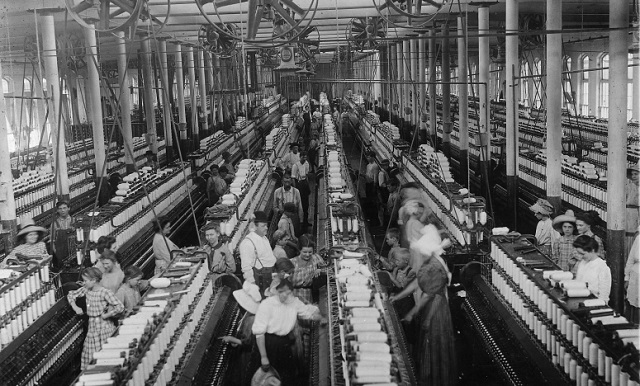
Lessons from Europe
| Dr. Eng. Kant Ateenyi Kanyarusoke: M-ASHRAE; M-SASEE | This is Part 2 of Dr. Eng. Kant Ateenyi Kanyarusoke’s four part series titled: ` Can Africa industrialise in its present form? – Lessons from elsewhere’. Here he discusses what he calls “enabling factors for industrialisation”.
Wherever the industrial revolution found root, in form of manufacturing, there were predisposing conditions for it. Some conditions repeated themselves in different countries but others were unique to specific societies. In this article, we explore these factors in England and in continental Western Europe – the presumed original areas of today’s modernity.
Conditions in England at onset of the revolution
Many reasons have been given by history researchers as to why the revolution we are discussing started in England and not anywhere else. Here, we will focus on those which could be more helpful in today’s sub-Sahara Africa. These can be grouped under 4 areas: Geography, Governance, Intellectual Scientific freedom, and Commercialisation.
Geography availed the inhabitants with an island separated and protected from attacks and instability of continental Europe at the time. It availed many navigable rivers and plenty of fresh water for both transport and future process industries. The sea provided the island with deep water river estuaries, allowing easy and cheap connection of the hinterland to the rest of the world for commerce. London city, for example, developed because of its location on the Thames-North sea estuary. Huge deposits of best quality coal and rich iron ore all over the island were the key raw material precursors to the revolution. Later, crude oil deposits in the North Sea were to spark developments in controlled combustion and chemical processes.
Relevant to most countries in sub-Saharan Africa today, is the observation that prior to England’s industrial revolution, historians report one in agriculture. To the authors however, both revolutions seem to have been intersecting parts of a creativity and innovation continuum running through England in the eighteenth century. Jethro Tull’s 1701 efforts to improve a seed drill and Joseph Foljambe’s 1730 ones on the plough are quite similar to those of 1709 Abraham Derby on making Pig Iron using coke instead of charcoal or of Thomas Newcomen on the 1712 steam power and later, of 1769 James Watt;s innovations on Newcomen’s engine. The point is that these and other innovations took place in an era of great desire – and in a country giving the freedom – to apply the then existing scientific knowledge in solving Man’s problems. Similar and concurrent innovations existed in non-mechanical sciences applications as well. Thus, Robert Bakewell’s and Thomas Coke’s work on selective breeding of domestic animals, adoption and refinement of crop rotation, along with land reclamation methods learnt from the Dutch were effectively used in a purely British system of legislated land enclosures to produce large quantities of food. These in turn led to a rapid population growth on shrinking ‘free’ land, and thus drove people to cities, where they could then provide low cost labour for industrialisation to meaningfully take off.
Geography and Science aside, historians point to peace and political stability provided by a progressive monarchy since 1689 as an important precursor to the revolution. The overthrow of the autocratic English catholic monarch, King James II and replacement by his daughter, Mary II and her protestant Dutch husband William III as joint rulers ushered in a golden era of intellectual and commercial freedom. Protestantism encouraged hard work, scientific enquiry, technological progress, entrepreneurship, and intellectualism. It challenged and overcame Catholicism’s conservatism of the previous era. With the new monarch’s agreement to submit to parliament, and pronouncement of the English bill of rights, it was easier to convince Scotland to merge its parliament with England’s in 1707, thus forming a most powerful single political and economic nation, Great Britain then. The new monarchy eliminated feudal tolls all over the island, actively supported entrepreneurs and developed a national free market system. It set up a formal British royal intellectual society. Because of the new found liberty, intellectualism went beyond formal British nationhood. Informal intellectual societies centred in England, covering continental Europe and European- settled Americas were formed. They enabled quick transmission and cross fertilisation of ideas and scientific thoughts in Britain. Moreover, intellectuals harassed in countries still under the yokes of catholic monarchs in Europe then, found welcoming refuge in free England. Karl Marx – from Germany – was one such intellectual. These developments, therefore, gave England an important head start in use of science to develop technologies that would set off and sustain the first industrial revolution.
 The Independent Uganda: You get the Truth we Pay the Price
The Independent Uganda: You get the Truth we Pay the Price



